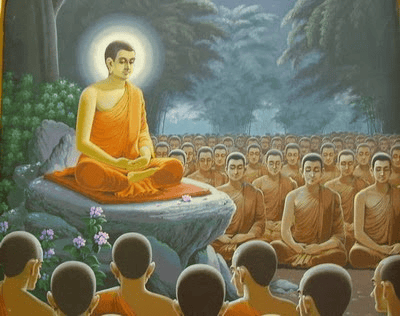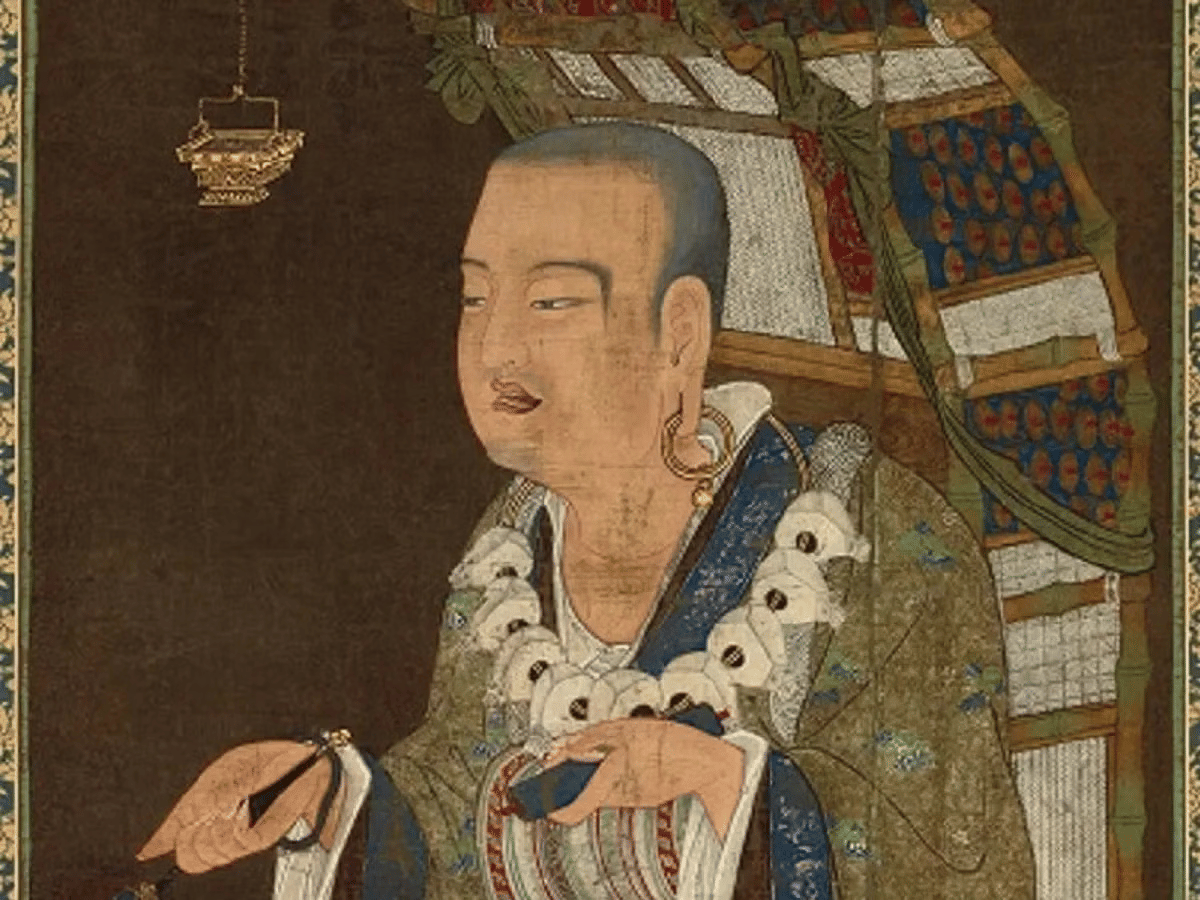NCERT Solutions for Class 6 History - New Questions and Ideas
Let’s Recall
Q1. Describe the ways in which the Buddha tried to spread his message to the people.
Ans:
- Buddha taught the people in Prakrit, which was the language of the ordinary people so that everybody could understand his message without any difficulty.
- He also encouraged people to think for themselves rather to simply accept what he said.
- Buddha, himself set an example to lead a simple life.
- Gautam Buddha moved from place to place to give his message to all people- ordinary as well as people from other classes of society.
 Q2. Write whether true or false:
Q2. Write whether true or false:
(a) The Buddha encouraged animal sacrifices.
Ans: False
The Buddha was against animal sacrifices. He believed in non-violence and compassion towards all living beings.
(b) Sarnath is important because it was the place where the Buddha taught for the first time.
Ans: True
Sarnath is important because it is the place where the Buddha gave his first teachings after attaining enlightenment.
(c) The Buddha taught that karma has no effect on our lives.
Ans: False
The Buddha taught that karma, or the actions we take, have a significant effect on our lives, influencing our future experiences.
(d) The Buddha attained enlightenment at Bodh Gaya.
Ans: True
The Buddha reached enlightenment at Bodh Gaya after meditating under a Bodhi tree and gaining deep spiritual un.
(e) Upanishadic thinkers believed that the atman and brahman were ultimately one.
Ans. True
Upanishadic thinkers believed that the atman (soul) and brahman (universal spirit) were ultimately one, meaning the individual soul is part of the universal spirit.
Q3. What were the questions that Upanishadic thinkers wanted to answer?
Ans: Upanishadic thinkers wanted to know about life after death. Some wanted to know why sacrifices should be performed. They felt there had to be something permanent in the universe that lasted even after death. Their ideas are recorded in the Upanishads.
Q4. What were the main teachings of the Mahavira?
Ans: The main teachings of the Mahavira are:
- He taught a simple doctrine, men and women who wished to know the truth must leave their homes.
- They must follow rules of ahimsa, which means not hurting or killing living beings, very strictly. For example, they had to cover their mouth and nose with cloth. This was to ensure that they do not (kill by mistake) kill small insects by hot steam of breathing. “All beings” said Mahavira, “long to live. To all things life is dear”.
- Lead a simple and pure life.
- Do not steal and lead a simple life.
- Mahavira was against caste system. He questioned the superiority of brahmins.
- He laid stress on Triratna or three jewels of life:
1. Right Conduct
2. Right Belief
3. Right Knowledge
Let’s Discuss
Q5. Why do you think Anagha’s mother wanted her to know the story of the Buddha?
Ans: Buddha was the founder of Buddhism and he was the Wise One. His stories could be inspirational and motivational to students. So Anagha‘s mother wanted her to know his story.
Q6. Do you think it would have been easy for slaves to join the sangha? Give reasons for your answer.
Ans: Yes, I believe it would have been easy for slaves to join the sangha because the Buddha supported and emphasized the equality of all people. Additionally, some slaves were skilled in their work and provided many valuable services to the members of the sangha.
Q7. Discuss the reasons why the Chinese pilgrims came to India.
Ans: The Chinese pilgrims came to India to visit places associated with the life and teachings of the Buddha as well as famous monasteries. They procured Buddhist religious books also. They carried some books back with them.

Let’s Do
Q8. Make a list of at least five ideas and questions mentioned in this lesson. Choose three from the List and discuss why you think they are important even today.
Ans: Ideas and questions mentioned in the lesson and their relevance today:
- Life is filled with suffering and unhappiness because of our unfulfilled desires. This is still true today, as many people are not content with what they have. Out of greed, they often turn to unfair practices, leading to more suffering and problems.
- Our actions (‘Karma’) affect us in our current life as well as next life.
- We should not hurt or kill any living being, according to Mahavira. This is important because every living being has a desire to live.
- Thinkers wanted to know about life after death and they wanted to know why sacrifices should be performed. Sacrifices are not justified since living being should be killed.
- Upanishadic thinkers also felt that something was permanent in the universe and it lasted even after death.
Q9. Find out more about men and women who renounce the world today. Where do they live, what kinds of clothes do they wear, what do they eat? Why do they renounce the world?
Ans:
- Religious saints, monks, nuns, philosophers, jain-munnies (rien as well as women), men and women who have joined the Buddha- Sangha renounce the world even today.
- They live in ashrams, vihars, sanghas, dargahas or lonely places of meditation or worship. Some of them even live in remote forests or near some permanent rivers or on the peak of mountains. They meditate for the most of the time.
- They wear very simple clothes or clothes of particular colour and design.
- Generally they eat vegetarian food, simple rice or chapatis along with milk, fruit, vegetables and pulses.
- They renounce the world because they feel that only those who leave their homes can gain true knowledge.
|
297 videos|1065 docs|204 tests
|
FAQs on NCERT Solutions for Class 6 History - New Questions and Ideas
| 1. What are the key topics covered in Class 6 NCERT Solutions? |  |
| 2. How can NCERT Solutions help students in their exams? |  |
| 3. Are NCERT Solutions available for all subjects in Class 6? |  |
| 4. How can students effectively use NCERT Solutions for studying? |  |
| 5. Where can students find NCERT Solutions for Class 6? |  |






















